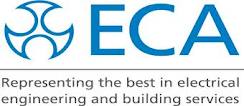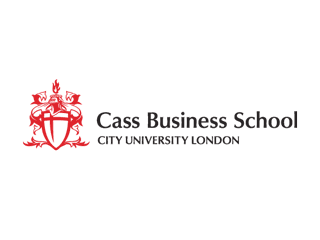
Showing all pages regarding leadership development.
Lessons in responsible leadership
Developments in the phone hacking inquiry raise more questions about the moral responsibility of leaders. In fact this news item, coming after a succession of scandals involving financial institutions and corrupt MPs, will ensure that the debate around business ethics and corporate responsibility will continue for some time.
I am intrigued by Rebekah Brooks’ statement that she had “no knowledge” of the phone hacking taking place at the News of the World when she was in charge of the paper. It might be argued that leaders of large complex organisations can’t be expected to know everything. Max Clifford, probably the UK’s best known publicist and now in jail, came to the defence of Ms Brooks saying she may not have known every detail about day to day goings on in the company. To some extent this is true. We all know of disastrous bosses who attempt to micro manage, not trusting managers to get on with the job and attempting to control everything. Such an approach to leadership just doesn’t work. As a boss you can’t know and do it all – without effective delegation and trust the business simply won’t move forward. Furthermore, staff working for a control freak will quickly lose any commitment or motivation to do a good job.
So where do you draw the line? How can leaders make it their business to know what’s going on in their organisation while at the same time allowing others the right amount of discretion and autonomy? Well, there are many ways of keeping your ear to the ground so that you don’t lose touch with the day to day: regular meetings and chats with staff (formal and informal); asking questions now and again, especially when something doesn’t ‘feel right’; being quite clear with others about what you do and don’t need to know; effective communication processes; and so on.
But a more fundamental solution lies in the articulation and communication of values and then firmly embedding these in the organisation. Responsible management involves a commitment to transparency and honesty. Leaders should be clear about their own values, their expectations of others and preferred ways of working. I have worked with businesses where staff are actively involved in the identification and communication of values – it’s not always possible but it’s the best way of getting ‘buy in’ and real commitment. Once established, these values become central to everything the business does, from the way customers are treated to the recruitment and promotion of staff. Clear values help to inform decision-making. Where risky or controversial decisions are concerned, reference to values can often help identify the ‘right’ solution.
I don’t know whether Rebekah Brooks or News Corporation have ever given a thought to their values or moral code. Somehow I doubt it. If they had, they wouldn’t be in such a mess now. More importantly many people, including Milly Dowler’s family, might have been saved so much unnecessary distress.
Specialists in leadership and responsible management
JPA’s consultancy services are based on our experience and understanding of people, their development and their relationships in business, particularly during periods of significant change.
Our approach is based on the philosophy that effective human performance in business (including effective leadership) is achieved by a holistic approach to learning which combines knowledge, experience and skills. The opportunities for working on all three together are so often missed, each one being treated in isolation.
At JPA we look at integrated growth: using skills and experience, for example, to develop knowledge in a specific area. Our philosophy is to develop a more strategic approach to organisational development, focusing on initiatives that draw together and utilise all the components of the person, situation and company in order to really make a difference.
We believe it has proven not only to be a more effective, accelerated approach to staff development but also one that has greater equity for the long term.
No-Nonsense Networking:
Six Steps to Raising Your Profile
A free eBook by Jeanette Purcell
Through thirty years of experience in business and academia and countless conversations with great networkers, I have observed that surprisingly few people network effectively. Yet good networking skills are essential if you want to get on in business and have a fulfilling career.
This is why I wrote this book. 22 pages full of practical tips and ideas on how to build long-lasting successful business relationships. It is for anyone who wants to grow their business, extend their business networks or raise their profile within their profession or working environment. If you are looking for a job or preparing for promotion, this book is also for you.
In No-Nonsense Networking, I take you through a practical approach to building a successful network in six easy steps:
1. Developing the right attitude.
You need to approach networking in a positive frame of mind. We debunk some of the myths about networking and deal with the common issues that hold people back from being enthusiastic and confident networkers.
2. Preparing your pitch.
With the right attitude and a clear idea of what you want to achieve from your networking you are ready to write your ‘pitch’. We look at how to tell your story and present your skills in a concise, positive and memorable way.
3. Managing your existing networks.
It’s not only about making new connections but also about managing your existing contacts. How well are you managing and tapping into your existing networks?
4. Preparing to network.
Successful face-to-face networking begins with thorough preparation. We will cover the preparation required for every networking situation.
5. Networking events.
From social gatherings to business meetings we look at how to manage networking situations, make the right connections and get results.
6. Building and maintaining the relationship.
Truly successful networks require maintenance. We consider the follow up required to convert a new connection into a productive business relationship and how to sustain and grow your networks over the long term.
Each step is explained in comprehensive detail, with achievable exercises at the end of every section. After reading this book, you will be better equipped to network confidently, successfully and intelligently.
Download for free
You can download this eBook for free from any of the following sources (click on the icons to open in a new window).
Download for free from Amazon Kindle Store, iBooks or as a PDF
About the author
Jeanette Purcell is the founder and Managing Director of Jeanette Purcell Associates, specialists in leadership development and change management. She is a leadership specialist, providing coaching, lecturing and consultancy services in all aspects of leadership development and organisational change. Her focus is on giving leaders and their organisations practical solutions that have a measurable impact on performance.
Jeanette is a Visiting Lecturer at Cass Business School and has over 30 years practical experience in management and business leadership. Until establishing her own business, Jeanette was Chief Executive of the Association of MBAs (AMBA), the global accreditation agency and network for MBA students and graduates. In this role she succeeded in raising the profile of the MBA as the premier qualification for business leaders and developed a range of services and support for MBA graduates throughout the world.
Jeanette is an accomplished international public speaker. She presents and writes on issues relating to leadership, business development and business education and has been instrumental in the delivery of Cass Leadership programmes in Dubai. Current corporate clients include Pfizer International where Jeanette delivers ‘networking skills’ training to high potential female managers.
In 2013 Jeanette founded the Brain Exchange, an exclusive forum for business professionals to exchange advice, knowledge and support in a confidential and professional environment. The Brain Exchange meets monthly in London and is achieving growing recognition as a high quality business network.
Financial Times item sparks MBA debate
I was amazed and encouraged by the overwhelming response to my article published this week in the Financial Times (“Rip up the MBA and start afresh”, The Financial Times, Monday 16 April). My mission to reinvent the MBA has sparked quite a debate. In the article I call for a review of the MBA, arguing that, if it is to continue to provide business with well rounded, effective leaders, it needs to change. I have long been an advocate for the MBA and have first hand experience of its benefits. I will continue to recommend the MBA as a means of broadening your business knowledge, acquiring new skills and achieving a step change in your career.
My concern is that the MBA curriculum has become too crowded and confused, partly because business schools have, to their credit, responded to changes in business and to demands for more skills and specialisms in the MBA syllabus. The time has come for a fundamental review starting with a fresh look at what it takes to be an effective business leader. I would like to see an MBA that truly reflects the needs of business today and that places a much greater importance on the development of practical leadership skills.
I demonstrate in my work every day that, with the right support and coaching, people are capable of learning how to lead effectively. It would be a significant step forward for the MBA if leadership development became central to the qualification. The mission continues.
To read my FT article go to http://www.ft.com/cms/s/2/c5b11ece-6229-11e1-872e-00144feabdc0.html#axzz1sOUZwmeO
How to get a return on your (training) investment
A recent article by Robert Terry in the Financial Times (FT) complains that, despite the significant sums spent annually on training and development by companies, very little of what is learnt translates into improved performance in the workplace. Studies shows that only 5-20% of the learning from training has any impact on the business. Given the current obsession with measuring everything against business targets, this is puzzling if not shocking. “Surely” Terry suggests “a training industry that delivers less than 20 per cent cannot be fit for purpose.”
He is right. Much of the training delivered globally, within companies or by universities, is probably ineffectual. Yet still many organisations fail to measure the impact of training on the business and individual performance. Terry suggests that one reason for this is the lack of any participation or involvement of line managers in individual staff development. He argues that managers fail to take responsibility for the learning and development of their staff and should be held to account for the transfer of training to the workplace. Trainers should also be more concerned with the application of training and how it will benefit the business.
As a leadership development specialist I take this issue very seriously and have long been promoting various approaches which help to ensure that companies and individuals get a return on their investment in training and development. First let’s look at business schools and the MBA – generally considered to be the leading international business qualification. I am a strong advocate of the MBA, but, despite the considerable cost of tuition, there is surprisingly little evaluation of how the qualification benefits business or its impact on individual performance. Many employers express the concern that MBA training is too divorced from the reality of business. Some are also reluctant to sponsor employees to take an MBA because of the risk that, once qualified, their employee will be off to find a higher paid job with better prospects. Many companies attempt to manage this risk by ‘tying in’ the employee with a contract requiring them to stay with the company for a certain period after qualifying. Well, it may stop them leaving but does this restraining order really help employers to get the most out of their highly qualified senior staff?
To be sure of a better payback, employers need to take a more considered approach to MBA sponsorship. I have always encouraged employers to address the following questions. Which employees would you select to support through their MBA training and why? How can the business get the best return from investing in MBA training? What are your long term plans for the development and progression of your most talented employees? While these employees are training, or when they are qualified, what new opportunities and challenges are you able to offer them? How will their new learning be applied in order to benefit the business? Dealing with these questions will not only keep senior staff motivated and engaged but will also help to ensure that employers realise the full value of MBA training.
Then there is workplace or corporate training. How do we improve the transfer of learning in this context? It’s true that some managers are too ready to shirk their responsibility for staff development, turning to HR to solve their performance problems with the wave of a wand or the provision of a 2 day training course. When I am asked to provide management and leadership training I spend some time during the planning stage with the CEO, line managers or ideally the management team. The aim is to get an understanding of the business, the people, the challenges they face and any specific performance problems so that I can make what I deliver as relevant and meaningful as possible. I want them to see my participation as an intervention in their company’s business process, picking up on what is already going on and developing ideas and actions for implementation in the future. It is essential to get the manager’s or CEO’s commitment to deal with any follow up and to support further development after my input. That way the training and development doesn’t end when I walk away.
Measuring the impact of training on business performance isn’t easy. But with a considered approach to staff development, the involvement of managers and input from trainers who are concerned with the application of learning, the returns can be considerable.
Credentials
Jeanette has over 20 years experience in management and was Chief Executive of AMBA for 7 years. She has worked in both the commercial and public sectors. Having completed her MBA (with distinction) at the Cass Business School, Jeanette was asked to join the school’s academic team as a Visiting Lecturer in Organisational Behaviour. She still teaches postgraduate students at Cass, focusing on leadership and interpersonal skills development, and has contributed to the development of a series of skills development workshops at the business school.
She spent 15 years in the field of further and higher education working in the political arena, educational policy development, qualification and assessment frameworks and quality assurance systems. Prior to joining the Association of MBAs, Jeanette was Director of Education and Training for the Association of Accounting Technicians (AAT), the international professional association for accounting staff with over 100,000 members and 500 approved training institutions worldwide. In this role, she designed a range of new vocational qualifications in accountancy and led the development of UK standards of competence for accounting technicians.
Jeanette is an accomplished and regular speaker at international conferences and seminars on a range of topics including leadership in business, management education, accreditation and quality assurance in education and women in management.
Testimonials
“As Chief Executive of the Association of MBAs (AMBA), Jeanette had the courage and determination to tackle several challenges facing the Association in an increasingly competitive environment. Under her leadership the Association rapidly developed and established its international profile and reputation as the authority on MBA education and the most respected accreditation agency for MBA courses.”
Sir Paul Judge, President of the Association of MBAs
“Jeanette Purcell is refreshingly unpretentious. Her advice and support are built on the firm foundations of practical experience, knowledge and understanding. She listens to clients and stakeholders and builds on their strengths to deliver tailor-made, effective and sustainable solutions. “
Jane Scott Paul OBE, Chief Executive, Association of Accounting Technicians
“Jeanette has a very pragmatic approach to coaching which was both supportive and constructive for the person she worked with. She successfully supported a senior manager through some significant changes and we have been really pleased with the outcome of the work she undertook. She took the time to get to know the individual and constructively steered us to a positive outcome.”
Michelle Macadam, Head of Human Resources, Institute of Physics
“Jeanette’s approach has de-mystified the subject of networking for me. Practical tools and helpful tips have helped me to change my approach and develop a more focussed, quality network. As a result the business has benefited and I have created new opportunities for my own personal development.”
Dr Katherine Barclay, Director of Solid Dose Manufacturing and Compliance Operations, Pfizer
“The ICAEW identified a need to encourage staff across the organisation to raise their visibility and improve their business networking skills. We hired Jeanette Purcell Associates to deliver a one day training workshop on the topic and we were extremely pleased with the result. Jeanette’s approach is focused entirely on the client’s needs. She delivers training that is highly interactive and practical, ensuring that participants leave with a clear commitment to put their training into practice. The feedback from this workshop was excellent and we would not hesitate in using Jeanette Purcell Associates again.”
Elaine Mulholland, Training and Development Manager, Institute of Chartered Accountants in England and Wales (ICAEW)
Jeanette was a pleasure to work with. She is highly knowledgeable and passionate about sharing her insight with others. She developed tailor-made content for a series of webinars on ‘resilience’. With growing evidence to show that resilient people do better in exams, their careers and have greater levels of overall happiness, the webinars Jeanette provided aimed to give our audiences – students studying our business and finance qualification, or those thinking of doing so – the understanding (and importantly the practical tools) to help them become more resilient.
Suzanne Heath, Marketing Manager, Institute of Chartered Accountants in England and Wales (ICAEW)
My coaching sessions with Jeanette are already proving invaluable. In the first few sessions I’ve addressed and resolved an immediate relationship problem and made significant progress by being brave enough to share my long term aspirations. I am revelling in the opportunity the sessions provide to focus on me in an independent, supportive yet challenging environment and the discipline of having to feedback on progress at the next meeting really works for me.
Academic and Non-Exec professional, ICAEW (2015)
I have worked with Jeanette since 2013 while working in different roles and at different organisations. We have worked through a broad range of topics including developing strategy to deliver meaningful change, building my personal brand, managing people, presentation skills to name but a few. I find her coaching style and technique excellent and have been able to implement real change in the way that I work and deal with difficult and complex problems and situations. Jeanette creates a coaching programme bespoke to the individual and takes time to understand how you work, what your strengths and weaknesses are and how you learn and process information, so that she can find the tools and techniques that will work for you.
Claire Angus, Assistant Director, Development, Royal College of General Practitioners
My executive coaching sessions with Jeanette have been most valuable, following an initial 360 review (in 2014) highlighting key opportunities to work on, I have been able to improve big things like corporate planning and strategic networking and small things like time management. This cathartic experience has allowed me to become a calmer and more productive member of the executive management team at IndigoBlue. I really look forward to our sessions and value the wisdom and insight Jeanette provides when exploring challenging situations.
John Wright, Head of Public Sector Services, Indigo Blue Ltd
Jeanette has been an inspiration. I will forever be grateful for her guidance and kindness. I appreciate and treasure everything I have learnt from Jeanette’s coaching.
Zilah Skerritt, PA to Chief Executive, Tratos Ltd.
“Having known Jeanette for some years, she was a natural choice when it came to developing a higher skills framework for the building services engineering sector. She readily understood the brief and that, together with her approachability and integrity, inspired confidence and co-operation amongst the participants. The outcome has been an acknowledgement of the importance of developing higher management skills amongst key industry players and the establishment of a collaborative approach to doing so.”
Iain MacDonald, Head of Education and Training, Electrical Contractors’ Association (ECA)
“Marubeni, a Commodities Trading Company, appointed Jeanette Purcell to deliver a workshop for our 3 day European Training Event. Jeanette delivered a very interesting and interactive session. She is an excellent speaker, and demonstrated a high level of knowledge and expertise in this area. The feedback from participants was extremely good, and we would definitely consider inviting Jeanette to deliver future training workshops.”
Rebecca Kemp, Marubeni Human Resources
“I first met Jeanette in 2000 when she was a student on our MBA programme. She was an outstanding student and graduated with a distinction. After graduation she took up an executive role and subsequently was appointed as CEO of the Association of MBAs. For the last five years she has been a visiting lecturer at Cass during which time we have worked together to design and deliver developmental assessment centres and a range of leadership courses for our executive MBAs in both London and Dubai. She is a skilled professional coach and excellent course leader and I recommend her without reservation.”
Paul Dobson BSc PhD CPychol CSci AFBPsS, Cass Business School, City University London
“As a new, full-time working mother I wanted coaching from someone who understood my situation. Jeanette was able to give me first hand practical advice. She also helped me set out a strategy to develop my client base. I now feel more in control, and focussed on my real priorities both at work and at home.”
Nicola Tait, Client Advisor, Capital Asset Management
“I have had the pleasure of working together with Jeanette on an international Womens’ Leadership Development program for one of the leading global organizations in the Pharmaceutical sector. Jeanette demonstrated an excellent capability to work with a large group of people from different cultural backgrounds, the design of her workshops was simply perfect, very well adjusted to the needs of the client, both pertinent at an individual level and highly interactive. Jeanette has the rare capacity to make leadership development a pleasant and an enriching experience. I only hope we can do more work together.”
Marc Timmerman, Partner Axiom Consulting Partners, Managing Director Axiom Consulting Partners Benelux
“JPA undertook a piece of work for the National College for Leadership of Schools and Children’s Services. This provided a detailed analysis of national and international business school programmes for consideration within the design of an executive leadership programme for experienced Directors of Children’s Services. This work was delivered under very tight timescales, to cost, and proved highly valuable.”
Aidan Melling, Operational Director – Children’s Services, National College for Leadership of Schools and Children’s Services
“As an Associate of Make Life Easy, Jeanette has designed and delivered training for our clients by focusing on their needs, and taking time to understand the people, culture and challenges for the company. Drawing on her business experience, her workshops are interactive, practical and fun. Jeanette has the rare ability to engage even the most reluctant participants, sending them away with new insights, skills and ideas to implement immediately. Jeanette has received excellent feedback from work she has delivered for Make Life Easy and has undoubtedly made a positive difference to the clients she has worked with.”
Fiona Hindle, Founder of Make Life Easy Limited, www.makelifeeasy.co.uk
How to be a versatile leader
What are leaders required to do? We could argue that it depends on the circumstances but most people would probably agree that leaders are required to get results.
And what are the activities leaders engage in to get those results? When I talk to leaders I divide the key activities into three categories. Leaders need to:
- Articulate their vision – identify a compelling goal and have a well thought out strategy to achieve the goal. (Strategise)
- Communicate their vision – raise awareness and understanding with all stakeholders. And this means communicating regularly and consistently. (Communicate and engage)
- Achieve their vision – plan, implement, recruit and develop others, manage performance, monitor and review. (Plan and Manage)
But the really difficult question is HOW can leaders do all those things? These activities require quite different styles of leadership. Setting and communicating your vision involves creativity, the ability to give clear direction, compelling others to follow your dream. Communicating and engaging with others requires good listening skills and the ability to bring people together, creating harmony and encouraging collaboration. And when implementing their strategy, leaders have to give attention to developing their people as well as managing performance which often involves taking tough and unpopular decisions. Is it really possible for one leader to do all of these things?
According to Daniel Goleman (“Leadership that gets results”, Harvard Business Review,2000) truly effective leaders are those who are capable of adapting their leadership style when necessary. Successful leaders are versatile in their approach and have a number of different styles in their repertoire. Not only that, they have sufficient empathy and emotional intelligence to understand what style to use in which situation. Goleman argues that aspiring leaders can acquire this versatility by taking the following steps:
– Have a personal vision of the sort of leader you aspire to be. Visualise your ‘ideal self’ as a leader. Many people struggle with the idea of having a personal vision but we know that, without a vision, it is difficult to find the motivation to change and to work out a plan for improvement.
– Carry out an inventory of what skills, attributes and qualities you already have at your disposal (these are your strengths) and work out where the gaps are between your self now and your ideal self. This requires a high level of self awareness. Think about where you can get good information (feedback from others, psychometric tests, coaching perhaps) to ensure that you have a clear picture of your real self.
– Draw up a ‘personal plan for development’ that helps you to build on your strengths and addresses the gaps between your self now and your ideal self.
– Practice. The only way to achieve versatility and develop new styles of leadership is to practice different behaviours. Challenge yourself to try out new approaches, resisting the temptation to rely on your default style. We are talking about changing habits here and that takes a lot of practice over time. Sufficient practice will mean that eventually the leadership style you aspire to will become natural – a new habit.
- Build trusting relationships. While you are following your plan for development you will need people to talk to, to share your successes and setbacks with, to spur you on and to give you feedback. Find people who you trust and respect and tell them what you are trying to achieve. Check in with these people regularly.
Being a versatile leader is not easy. But there is no longer ‘one right way’ to lead. What is needed is the ability to understand people and situations and to adopt different leadership styles in response. In other words, successful leaders do the right things at the right time in the right way with the right person.
Andy Murray – feel the love!

I’m sure I wasn’t the only person to shed a tear at the sight of Andy Murray lifting the Wimbledon trophy above his head on Sunday. It was a fantastic, hard-won and emotional victory. Reflecting on Andy Murray’s progress over the last few years I realised that emotion has played a major part in his development as a player and has contributed to the remarkable increase in his fan-base. Success is often helped by having a loyal and strong following – in sport as well as in business – and it is important to understand that emotion is a key factor in both contexts.
Three years ago Andy Murray was a difficult character to like. He had a fan-base but had not earned a great deal of support from the general public. He was criticised for being moody and stony-faced – someone who was so focussed on his sport that he was a ‘closed-book’ to observers. That all changed last year when, on losing the Wimbledon final to Roger Federer, Murray found it hard to speak through his tears of disappointment. These were not carefully planned tears, put on for PR purposes, but genuine sobs that he tried so hard to fight back. It was this display of emotion that won him support and affection from a wider audience. What people saw on that day was a human being with emotions and feelings like everyone else. Here was a man who, in that emotional interview, showed the world how badly he wanted to win and how deeply he felt his failure. And by displaying that emotion, albeit not in a calculated way, Andy Murray won the hearts of people who, from then on, would follow him more closely and with more commitment than before.
In the business context we can see that sometimes it is necessary for followers to see the human side of their leader. The tough, macho style of leadership is becoming a thing of the past. People give their commitment and loyalty to those who are capable of displaying emotion now and again. No one wants a leader who sobs at every set-back or who flies into a rage when things don’t go as planned. But neither are we attracted to those whose steely determination to succeed makes them unapproachable, insensitive and detached. We need some kind of human connection with leaders before we are ready to make an emotional commitment to them in return. And it is the leader who is prepared to show some passion and sensitivity who is likely to win that level of commitment.
I cried for Andy Murray because I had witnessed his own tears a year ago. Like so many other people I supported him because I knew just how important winning was to him. That emotional connection with those who we follow is as important in business as it is in sport. Well done Andy, and feel the love!
Women in the Board Room

(Firs published 9 March 2011)
Last month the UK Employers’ Federation, the CBI, called for more proactive steps to redress the gender imbalance in Board Rooms. A report from Cranfield University had found that only 12.5% of Board positions in the UK are held by females and that there had been little change in this proportion over recent years. To its credit, the CBI argued that, with women accounting for half the population and making up just under half of the workforce, their continuing under representation at Board level was unacceptable. Indeed, there is strong evidence to suggest that companies with more diverse Boards tend to perform better than others. Instinctively we can appreciate how a more diverse top team, involving different perspectives, attitudes and experiences is likely to make for better, more robust, decision-making.
But the CBI’s proposal, that UK listed companies should be required to achieve internally set targets for female Board participation, is too simplistic a response to a complex issue. Enforcement through legislation only aggravates the ‘political correctness gone mad’ lobby – who would argue that, in bending over backwards for women, we end up with female executives who achieve their senior positions not through merit, but solely because of their gender. In fact targets and quotas for achieving diversity at the top may redress the gender imbalance but such measures are unlikely to change attitudes or workplace practices that lead to inequality in the first place. The reality is that there are many reasons why women are in the minority at the top and each reason requires a particular and different response.
As Chief Executive of the Association of MBAs I became particularly interested in understanding why there were so few women MBA students. Women account for between just 25-30% of students taking MBA courses anywhere in the world and this figure hasn’t changed much in the last 10 years. My investigations and research into the issue failed to establish a single explanation for the low number of women MBAs. But there is evidence to support a fascinating range of possible causes:
- MBA students tend to be in their late 20s and early 30s – this is not an ideal time for women to commit to such a demanding and rigorous course as many are likely to be having or considering having children at this age;
- There is a continuing perception that the MBA environment is competitive, macho and hard-nosed – concerned primarily with big city finance and number crunching. Although this perception no longer reflects the reality, many women are put off by this impression of MBA study and the business school environment;
- It appears that, when it comes to sponsoring staff to undertake MBA study, employers tend to favour male employees over females. Prejudice may be at play here but there are other factors including the way in which women view their own self-development and their apparent lack of assertiveness (relative to men) when it comes to seeking support for their advancement at work;
- There are very few high profile female role models at the top – in business or in business schools – thus reinforcing the perception that women have no place or little chance of success in leadership or at an executive level in business.
I could go on. There are further issues relating to the lack of confidence that some women have in their own ability and potential. The point is that the many and varied reasons behind the low number of women MBAs also tell us something about the under representation of women in the Board Room.
Telling employers to simply appoint more women Board members is not the answer. Helping employers to recognise the skills women bring to business and their value in the workplace; working with companies to improve the recruitment, development and support given to female employees, is likely to be a better solution in the long run.
How to make a million jobs
This week I was delighted to support and sponsor the launch of a provocative and insightful book – “How to make a million jobs” by Colin Crooks. You can order a copy here. Colin is a social entrepreneur who, in his book, challenges all of us to think differently about unemployment and its causes. His solutions are radical but not unrealistic and are based on Colin’s experiences as well as persuasive, independent evidence.
As a leadership specialist, working with corporates, professional associations and universities, it is not immediately clear why I should decide to sponsor such a book.
The main reason is that I share with the book’s author a concern about people and their development. I also believe in the capacity for people to change their attitude and behaviour and to learn new skills.
The book is full of real stories about people, young and old, who had given up all hope of finding work. They were poorly educated, lacked confidence and had few social or employability skills. When these people were offered an opportunity to work and when this was accompanied by some support and encouragement they responded positively. Many went on to better jobs and have not looked back.
The book, and my own experience, demonstrates this: that when people at work are supported and developed in the right way they tend to be good employees. They become committed, engaged, interested and keen to learn. They gain in confidence and in ambition. Of course there are always exceptions. But, in general, we know this simple statement of cause and effect to be true.
The problem is that so many employers do not have the commitment or the capability to provide the support required. The challenge for government, policy makers and anyone with an interest in this area, is to change the attitude of employers. We need to be better at getting employers to truly appreciate and realise the business benefits of developing their people. Then we need employers to be better at motivating, supporting and engaging their staff. Employers should be asking whether they and their managers are managing people effectively and providing good role models to all staff.
The people in Colin’s book were fortunate to be taken on by a good employer with good people management skills. Sadly that’s not true of all employers, and many people entering a new job do not get the support and development they need.
Developing people and changing their behaviour requires patience, and this isn’t easy in the current climate where many companies are driven by an obsession with short term results. But understanding that link: between managing people effectively and building a successful business is fundamental to good leadership. It informs everything I do and it is at the heart of Colin Crooks’ book.




































